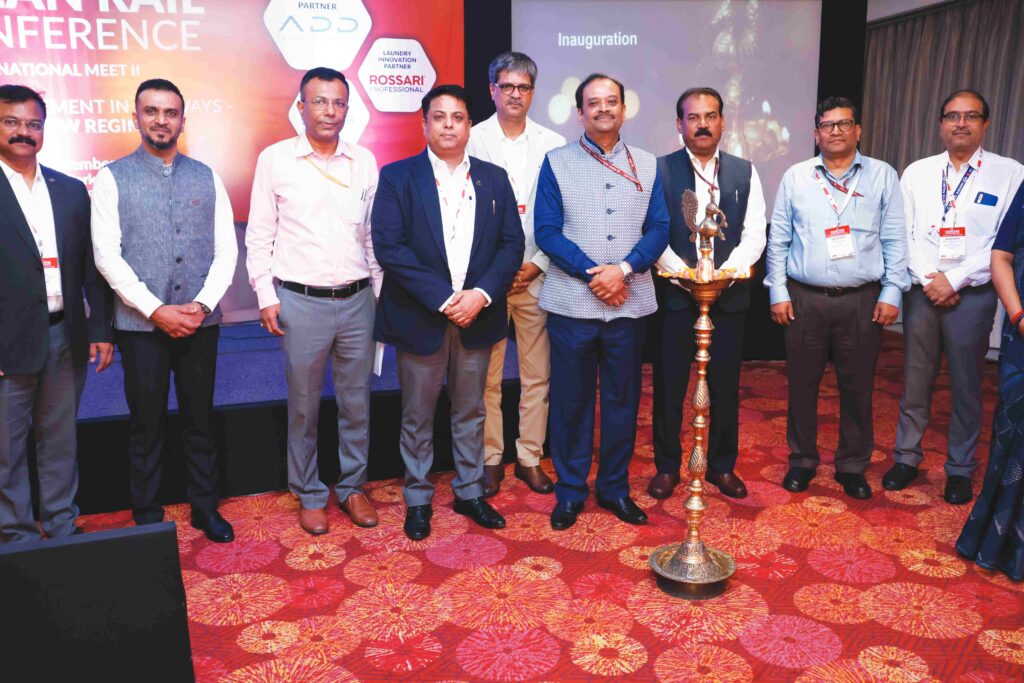
The 5th edition of the Clean Rail Conference and the 2nd National Meet organized by Clean India Journal in association with Indian Railways, brought together Indian Railway officials from across the 19 zones, industry leaders and stakeholders to address the challenges faced with IR linen management, and the new opportunities for & expectation from the laundry sector. The focus of this edition was on embracing technology, sustainability, and innovations to meet the growing demands of Indian Railways, especially in the context of linen management. A Report:


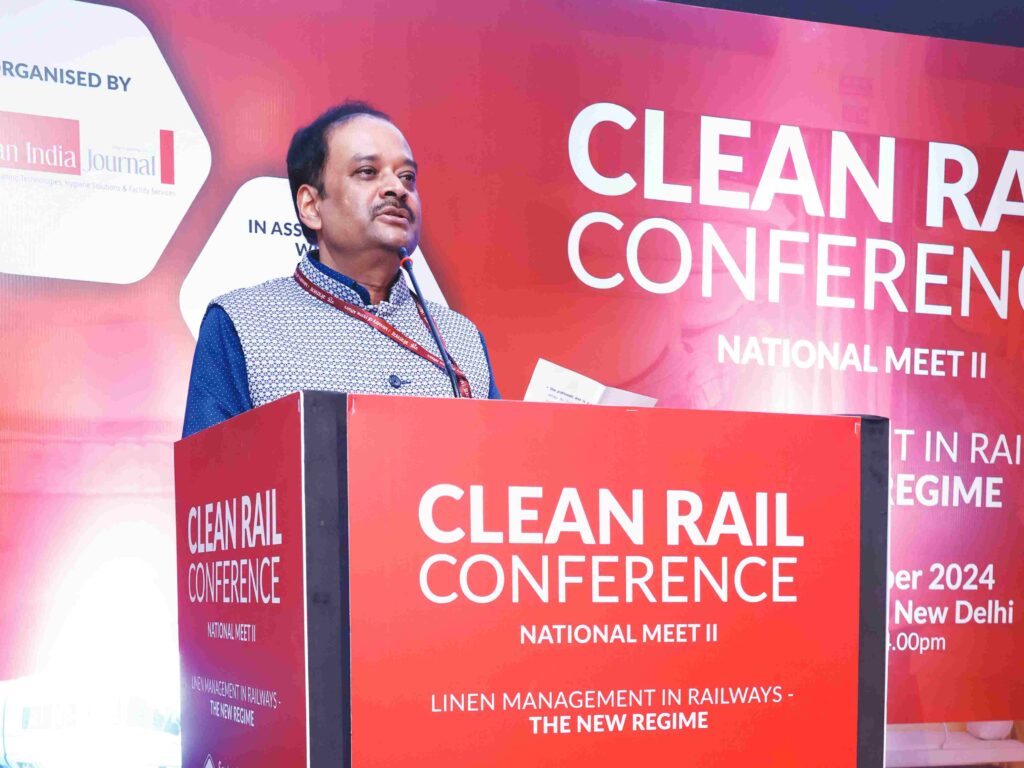
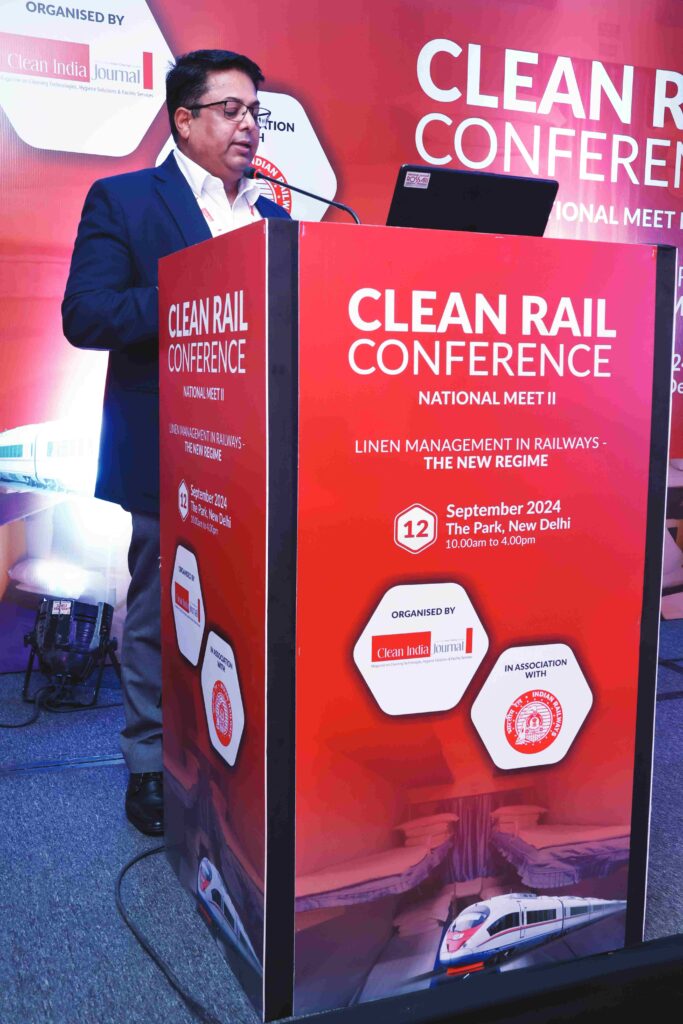
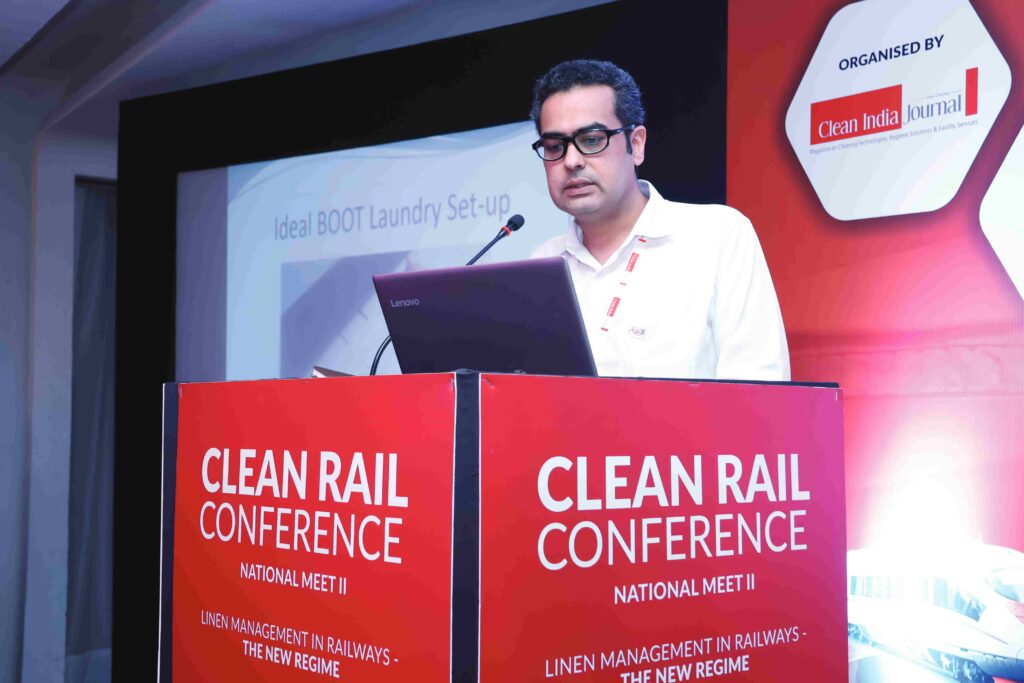
The one-day Clean Rail Conference-National Meet II was inaugurated by Chief Guest Shri Sanjay Kumar Pankaj, Additional Member Production Units, Railway Board, Shri Shailendra Singh, Principal Exe. Director/ ME (EnHM & Proj.), Railway Board, Shri Ajay Jha, Director EnHM, Railway Board, Guests of Honour, including Shri A K Chandra, PCME, Northern Railway, Shri Sunil Kumar, PCME, Central Railway, Shri Vineet Kumar Srivastava, DRM/BSB, North Eastern Railway, Shri Shivendra Mohan, Chief Workshop Engineer, South Central Railway, Shri Ravinder Kumar Verma, PCME, Western Railway and Shri Kanwalpreet, EDRS/G, Railway Board.
Supporting from the laundry sector end, the CRC-NII was steered by Akash Dharamsey, Director, ADD Laundry Concepts Pvt. Ltd. and Yashodhar Vallala, President, Railway Boot Laundry Operators Association and CEO, Supreme Laundry Services.
Also supporting the event were Sanjiv Sharma, Regional Sales Head-North and Vertical Head-Govt, Rossari Professional who spoke on Laundry Management in the New Era and Dhivakar Gopal, Training Manager, Ecolab who gave a Tech Talk. This was followed by an expert talk by Shri Shailendra Singh, Principal Exe. Director/ ME (EnHM & Proj.), Railway Board.
Rahul Gaikwad, Manager-Client Relations, ADD Concepts Pvt. Ltd gave a presentation on Shaping the Future Together and Rahul Kothari, Manager-Projects, ADD Concepts Pvt. Ltd presented an Ideal Laundry Set-up.
Following the welcome note by Shri Ajay Jha, Director EnHM, Railway Board, the Chief Guest Shri Sanjay Kumar Pankaj, Additional Member Production Units, Railway Board set the tone with his keynote address. He stated that the Indian Railways requires approximately 650 tonnes of linen daily which will be served through Build-Own-Operate-Transfer (BOOT) laundries, as well as departmental laundries. Recent years have seen challenges in maintaining these services, largely due to the pandemic, but new policies have been introduced to facilitate their expansion.
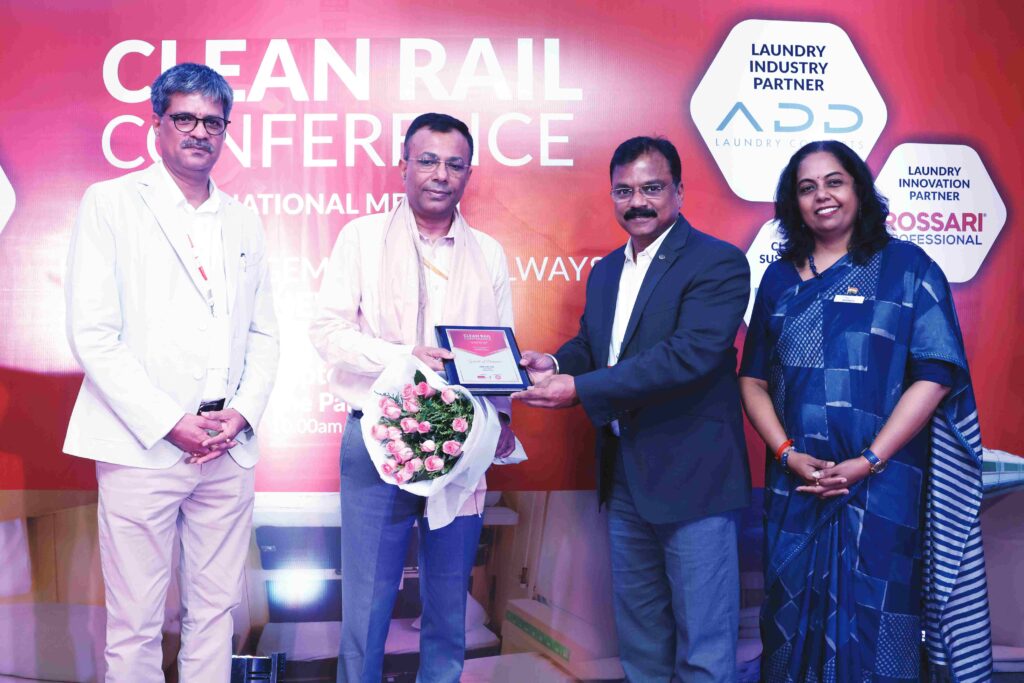
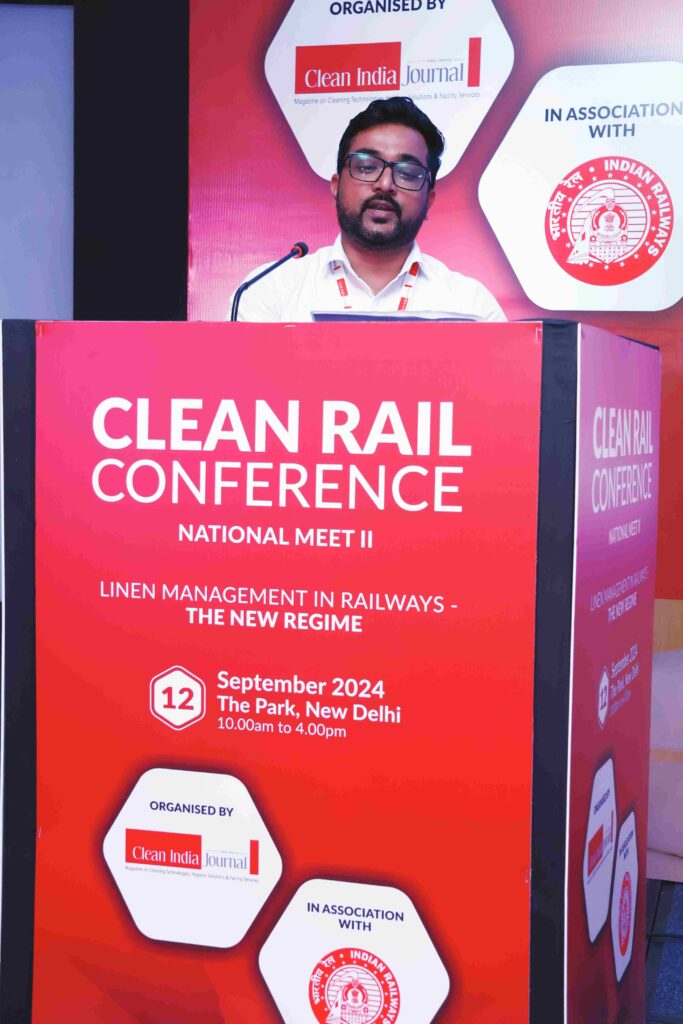
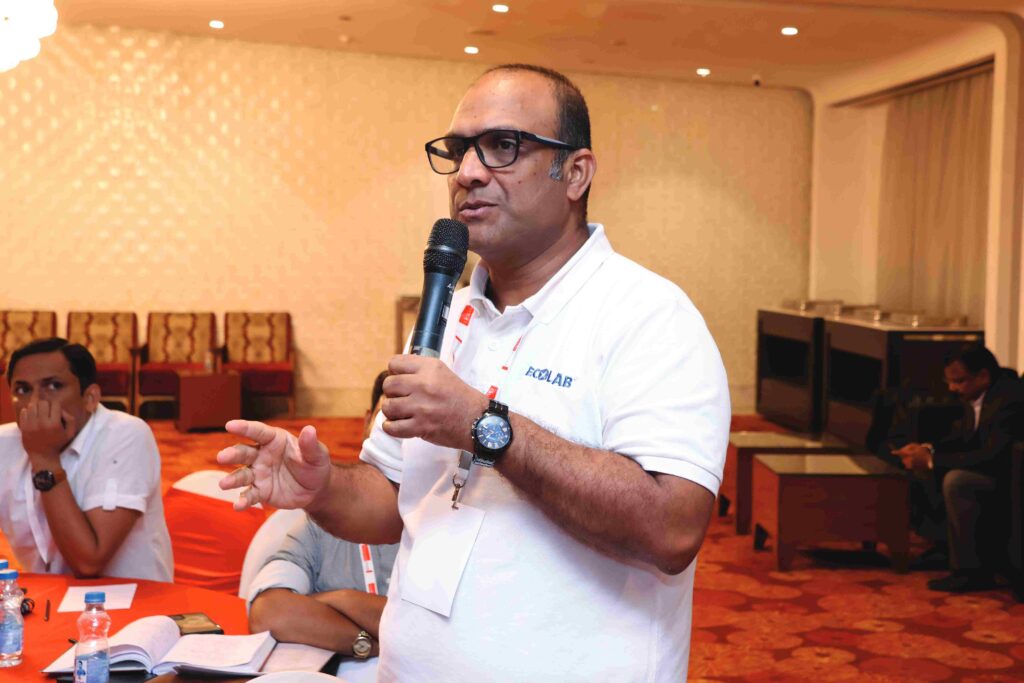
During the keynote address, Shri Sanjay Kumar Pankaj highlighted the following points:
• Most BOOT laundries are over 10 years old and the laundry sector could partner with IR in procuring competitive machineries
• Lack of proper stain remover, which has led to frequent passenger complaints; urging the laundry sector to develop a better solution
• Linen counting requires a lot of manpower, and automation is recommended to address this inefficiency
• Advanced technology should be used to increase the number of washes, which can help extend the life of linen and reduce costs
• Wrinkles in linens lead to dissatisfaction as they appear used, and upgrading calendaring machines could eliminate this problem
• Current fuel usage in boilers relies heavily on petro-based fuels, and there is a need to switch to green or low-emission fuels
• Solar augmentation, natural lighting, and proper ventilation should be considered to improve the work environment in laundries
• All laundries should comply with National Green Tribunal (NGT) standards for a better working environment and sustainability
• Proper CCTV monitoring is necessary for close supervision and efficiency in laundry operations
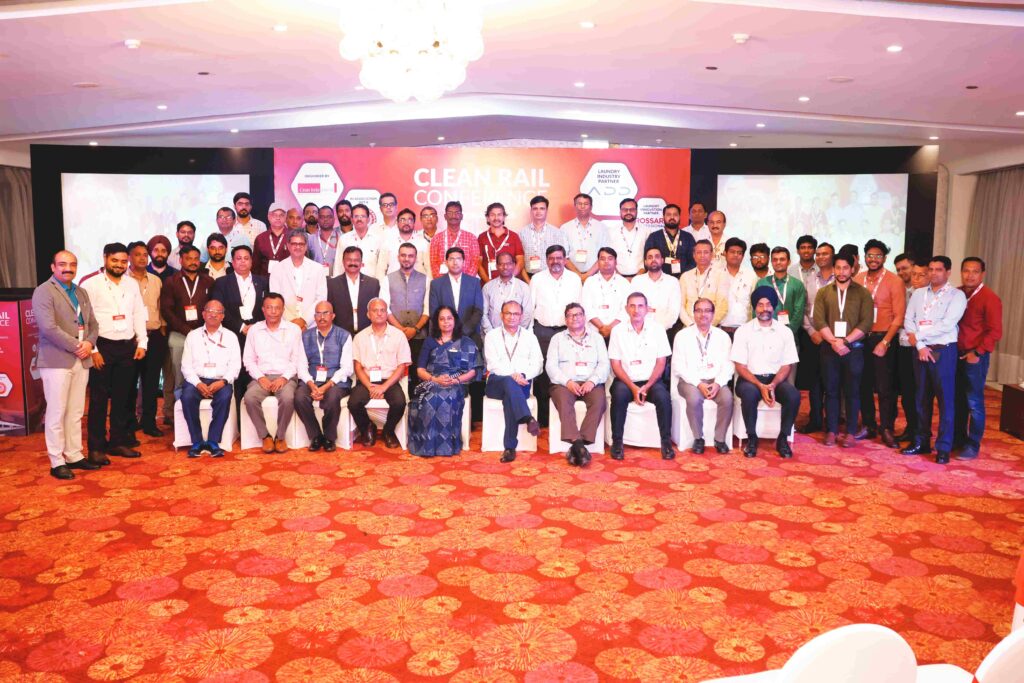
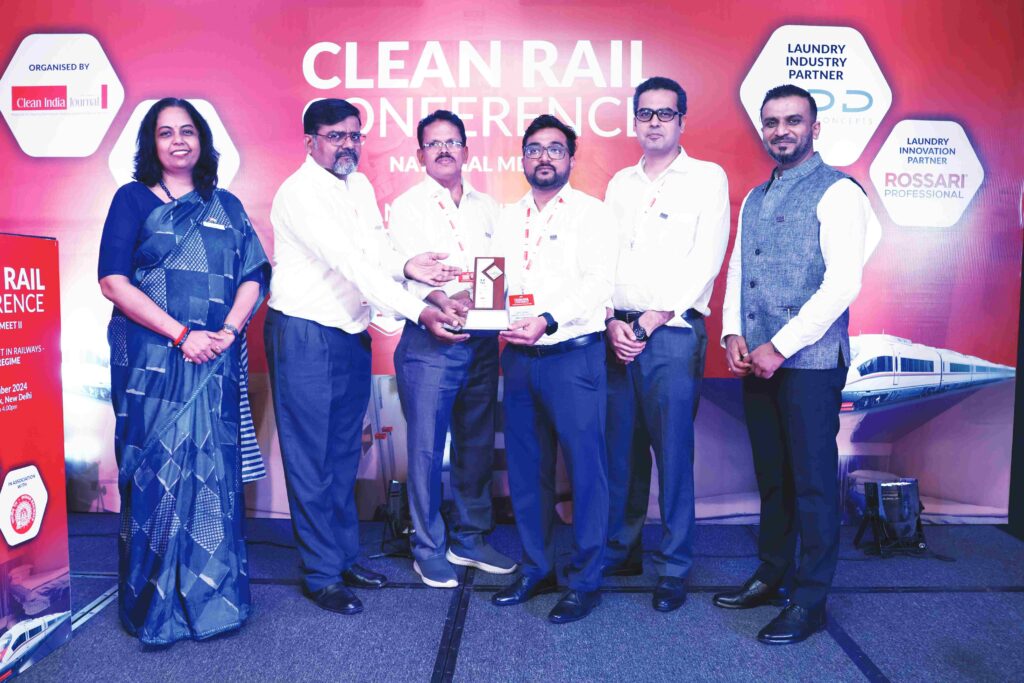
He also added that the BOOT laundry system is being revitalized under new policies, with an eye toward balancing machinery procurement between Indian manufacturers and imports. Government mandates ensure a minimum local content in imported machinery, which supports domestic production.
Yashodhar Vallala, President of the Railway BOOT Laundry Operators Association and CEO of Supreme Laundry Services, thanked Indian Railways for the revival of BOOT laundries, but noted that the growing demand for linen, increasing by about 10% annually, has put pressure on the current system. India, the second-largest consumer of railway linen in the world after China, surpasses even Europe in its daily needs. However, there are significant gaps in managing this volume effectively, particularly in the post-pandemic landscape.
Vallala pointed out that many BOOT laundries lack standardized operating procedures, with outdated departmental laundries relying on manual processes that incur high costs and are inefficient. Outsourced laundry services also face challenges, and the growing number of complaints from passengers highlights the need for better monitoring. On-Board Housekeeping Staff (OBHS) are often burdened with managing unwashed linens, which pile up in train vestibules and lead to financial losses. Furthermore, contractors face delays in payment, and the varying quality of handloom-sourced linen affects both the texture and wash quality. One of the major health concerns raised was the lint generated by handloom linen, which poses a risk to workers’ lung health.
The way forward for BOOT laundries includes modernizing contracts to cover infrastructure, washing, distribution, and linen supply. The integration of RFID technology for tracking and lifecycle monitoring, along with on-demand linen supply, were suggested as essential upgrades.
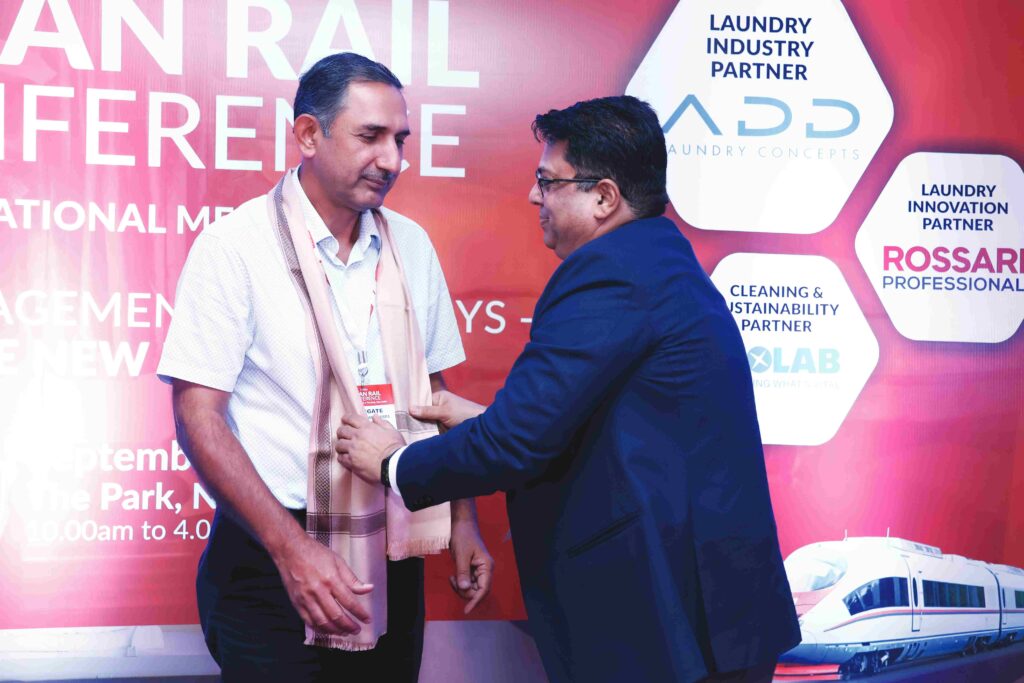

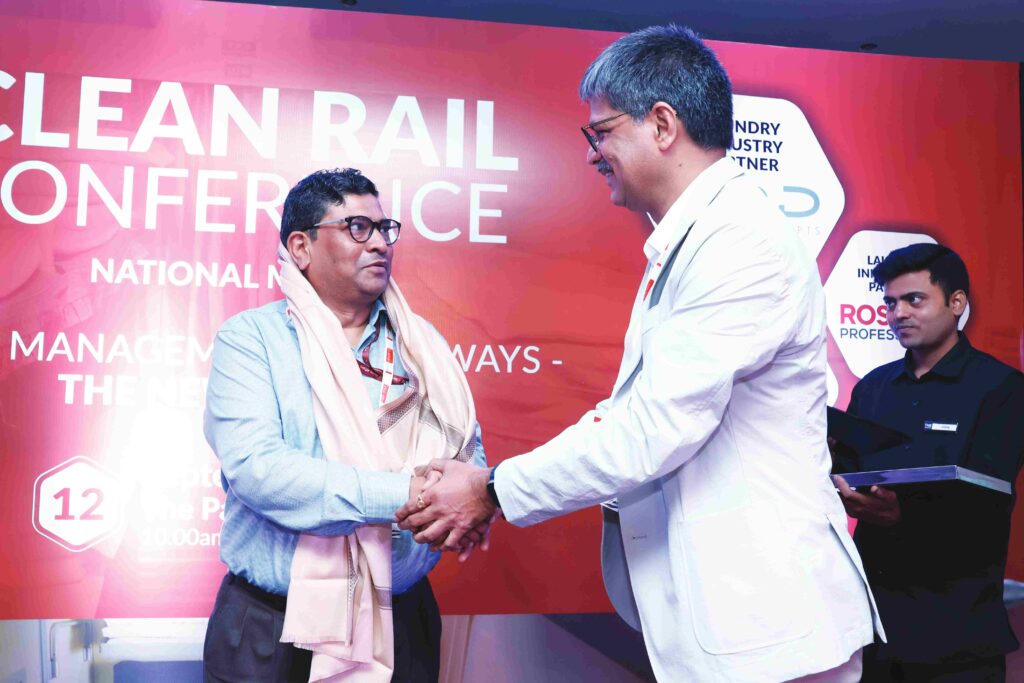

Akash Dharamsey, Managing Director of ADD Laundry Concepts Pvt. Ltd, shared his insights, noting that Indian Railways delegates displayed a keen interest in both the quality and quantity of linen. There was a strong focus on adopting new technologies, sustainable practices, and automation to improve efficiency. He emphasized that collaboration between Indian Railways and vendor partners should be based on quality, automation, and sustainability, not just price. Standardizing laundry processes and equipment across zones, prioritizing automation, and enforcing strict quality standards were all suggested as steps to enhance operations.
The conference concluded with a clear vision: by embracing automation, eco-friendly products, and sustainable practices, and through better collaboration between Indian Railways and its partners, the future of railway laundry services looks promising. These improvements will not only meet the rising demand for linen but also ensure better hygiene, operational efficiency, and sustainability across all zones.
During the concluding session, Shri Shailendra Singh, Principal Exe. Director/ ME (EnHM & Proj.), Railway Board, said that the Clean Rail Conference platform offers a great opportunity for exchanging new ideas and exploring emerging technologies. “Indian Railways is committed to enhancing the passenger experience, and linen plays a crucial role in that. We have been focusing on it through a two-fold strategy: improving linen quality and upgrading the washing process. We are moving from basic cleaning to environmentally sustainable washing systems.
“Our approach emphasizes adopting better technologies that reduce energy, water consumption, and chemical usage in linen management. We have also been able to extend the life of linen through more washes, contributing to cost reductions. The goal is to provide linen that feels superior in terms of finesse, whiteness, and is gentle on the skin, ensuring no irritation on first contact.
“These are the key challenges the industry faces today. Every year, we are equipping around 3,000 AC coaches, and currently, 600,000 bedroll kits are being used daily—10-15% of which represent significant numbers. We need to expand our capacity by establishing more laundries, and BOOT laundries are now permitted as part of a policy decision, with around ₹400 crore allocated for departmental laundry improvements, emphasizing green technology.
“Our ultimate goal is to achieve net zero by 2030.”

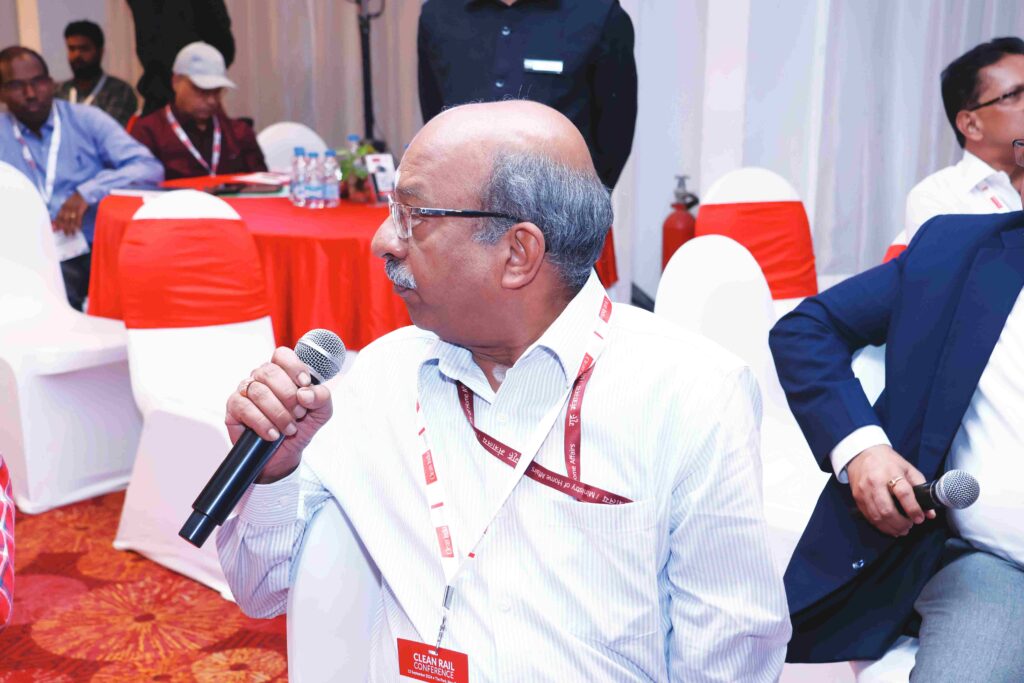
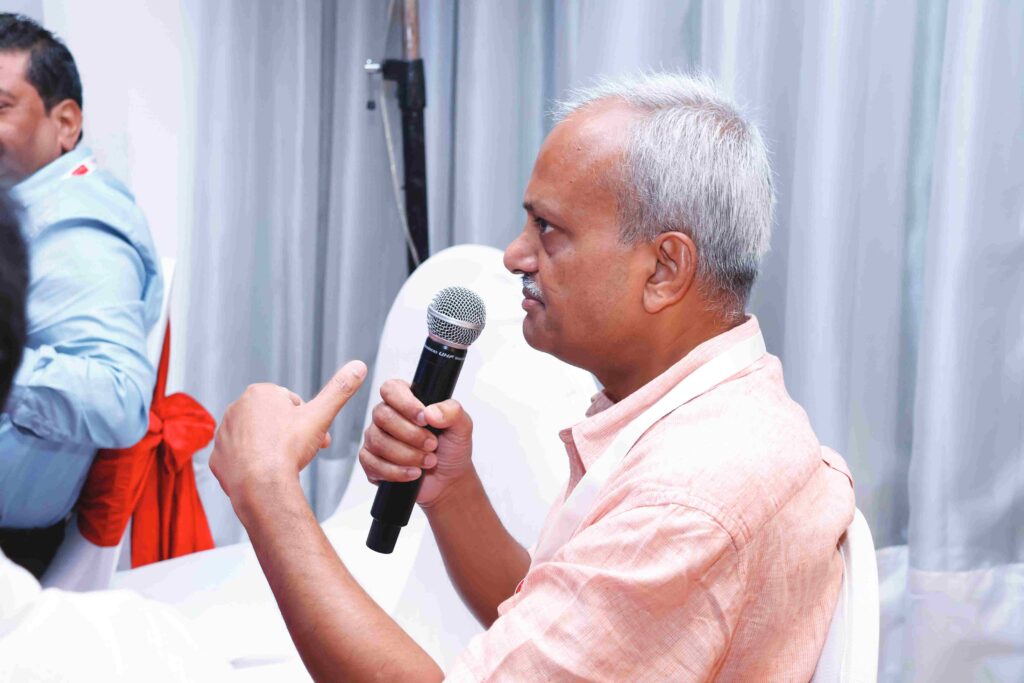
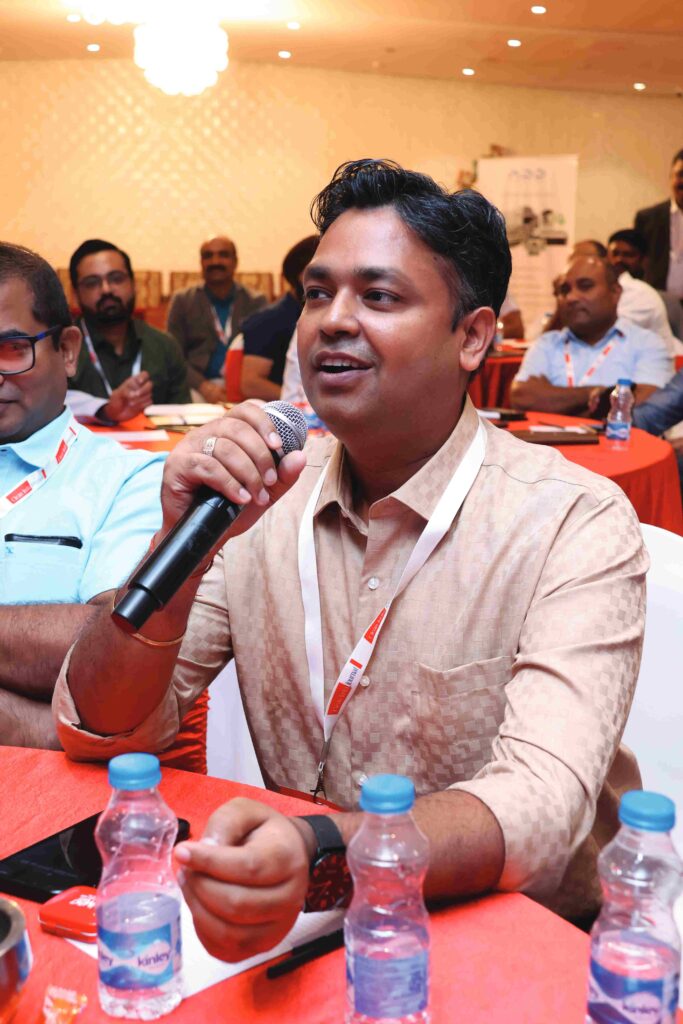
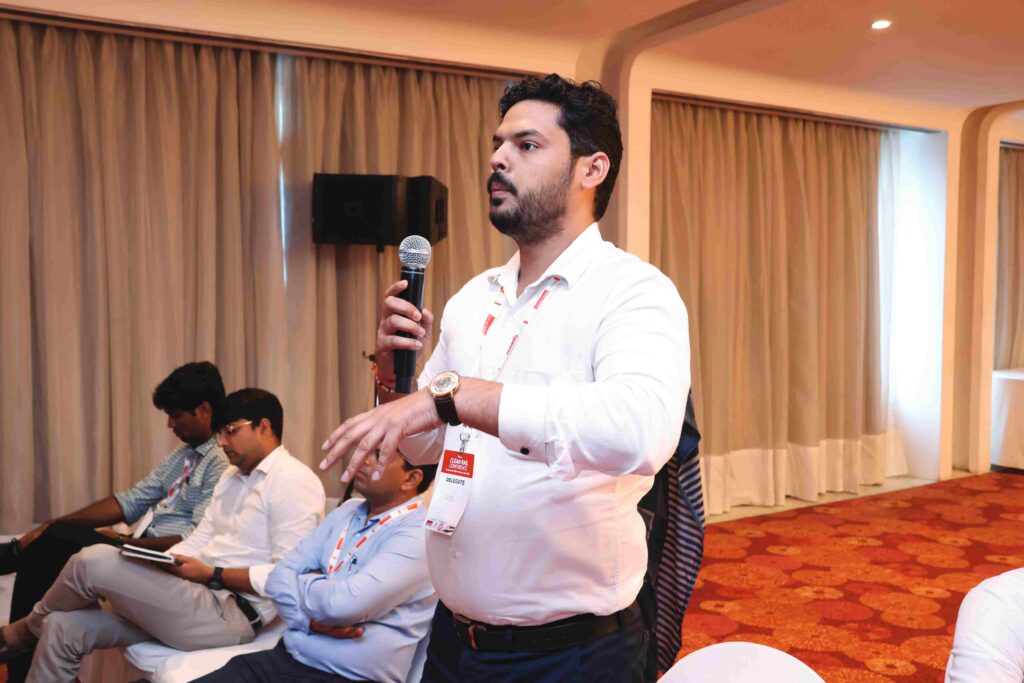


 CIJConnect Bot-enabled WhatsApp
CIJConnect Bot-enabled WhatsApp












